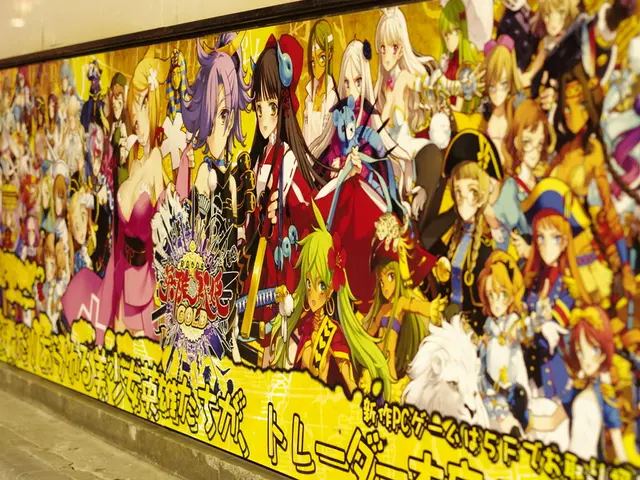Social Media Personality Under Fire for Alleged Internet Abuse of Minors, Resurrecting Controversy over Mature Content Normalization in Brazil
In a recent development, a Brazilian influencer, Hitalo Santos, is under investigation for suspected exploitation of minors in content published on social media. The investigation was sparked by a video titled "Adultization" created by content creator Felca, which has garnered over 32 million views.
At the centre of the controversy is a 17-year-old girl named Kamylinha, who began appearing in Hytalo Santos' videos at the age of 12. According to videos shared on social media, Kamylinha lost the baby at the beginning of her pregnancy. Hytalo Santos, in his videos, described Kamylinha as "more of a product than a human."
The term "adultization" refers to the early exposure of children to behaviours, responsibilities, and demands incompatible with their age and reserved for adults. This early exposure can lead to sexualization and exploitation, which are key concerns in the debate about ethical limits in content creation involving minors in Brazil.
Hytalo Santos gained popularity and earnings by sharing dance videos on the internet, often accompanied by minors in inappropriate clothing. He offered financial support, housing, food, and education to the minors in exchange for their participation in his videos.
The video "Adultization" mentions several cases of sexualization and exploitation of minors on the internet. After the publication of the video, Hytalo Santos' Instagram account was deactivated, and he has not yet spoken about the case.
The denunciation had political repercussions, with the President of the Chamber of Deputies, Hugo Motta, announcing the voting of specific projects aimed at protecting children on social media.
Brazil has recently taken significant legal measures to address these issues. A key legislative development is the proposed bill PL 3910/2025, which mandates digital platforms to implement reliable age and identity verification technologies to prevent minors from accessing harmful content or creating accounts on platforms not meant for children. The legislation also requires platforms accessible to minors to conduct risk assessments to ensure youth safety, block illegal or harmful materials—including content with inappropriate sexualization—and impose severe fines for noncompliance.
Moreover, Brazil’s Supreme Court has reinforced the accountability of internet platforms for harmful user-generated content, including child exploitation material. The court ruling clarifies that platforms are not neutral intermediaries and must comply with constitutional protections for fundamental rights, holding them jointly liable for illegal content such as child pornography or content causing significant harm to users.
These measures illustrate Brazil’s comprehensive approach to protecting minors online from early exploitation and exposure to harmful digital content. The case of Hytalo Santos serves as a reminder of the importance of these measures and the need for continued vigilance in ensuring the safety and well-being of minors online.
References:
- Brazil's proposed bill PL 3910/2025
- Brazil's Supreme Court ruling on platform accountability
- Meta demanded to remove AI chatbots simulating child profiles
- Brazilian Attorney General’s Office (AGU) demand to Meta
- Brazil's strong legal precedent against exploitation facilitated by emerging technologies
- The social-media platform Instagram, where Brazilian influencer Hitalo Santos' account was deactivated, is now under scrutiny for its role in spreading content containing minor exploitation and inappropriate sexualization.
- In the wake of the recent controversy surrounding Hitalo Santos, general-news outlets have been reporting extensively on the dire need for entertainment industries, including social media, to impose stricter age and identity verification mechanisms.
- The ongoing investigation of Hitalo Santos for suspected exploitation of minors has sparked a wave of political discourse, with a focus on crime-and-justice issues and the need for legislation to protect children from digital abuse on social media.







